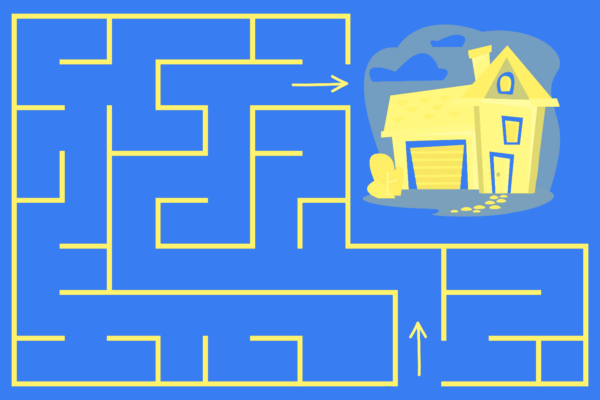
Find Your Neighborhood: Pros and Cons of HOAs

If you’re house hunting in the Austin area, there’s a good chance that many of the homes you view will belong to some type of homeowners association, or HOA. Almost 60% of recently built single family homes and 80% of homes in newly built subdivisions in the U.S. are part of an HOA. In Texas, those numbers are likely even higher. A study conducted by the Community Associations Institute (CAI) found that Texas has one of the highest concentrations of HOAs in the country. In the Lone Star State, there are approximately 20,000 Homeowners Associations that are home to over 5.5 million people.
While HOAs have become more common, that doesn’t mean purchasing a house in a community governed by an HOA is best for you. There are definitely advantages to belonging to an HOA, but there are drawbacks as well. Here, we’ll review the pros and cons of HOAs so you can make an informed decision purchasing the home of your dreams.
From Mortgages to Home Equity Loans
Our local, award-winning lending team is ready to help you begin today.
What is an HOA?
First of all, it’s important to know what an HOA is and what it does before you decide to purchase a home in a subdivision that belongs to one. An HOA is defined as “an organization in a condominium or other planned housing community that makes and enforces rules about the appearance and maintenance of properties, and that maintains common areas with money from membership fees.”
When you purchase a home in a development governed by an HOA, you agree to become a member of the homeowners’ association, paying the associated fees and abiding by the rules established by the association. If you’ve rented before, it’s similar to having a landlord or property manager who will take care of certain features of the community in exchange for a fee and your agreement to follow certain guidelines.
The Pros: Less Work for You
According to the 2022 Homeowner Satisfaction Survey conducted by CAI, 89% of homeowners and condominium residents rate their overall experience of living in a community association as “very good” or “good”, or “neutral.” Very few of the homeowners surveyed were dissatisfied with their HOA, and there are several reasons for this level of contentment.
Less Maintenance
Many HOAs will handle the exterior upkeep of the homes under their jurisdiction. That means taking care of mowing the lawn, trimming bushes and trees, and even pest control. And as with many high-end rental communities, the HOA will also often provide other services, which can make your life as a homeowner less stressful. These may include:
- Maintaining HVAC, electrical and plumbing systems in common areas
- External building repairs, including roofs and walls
- Cleaning and painting the exteriors of community buildings
Access to Amenities
One of the major advantages of an HOA is sharing the costs of amenities with your neighbors that you might not be able to afford on your own otherwise. Many HOA communities offer swimming pools, tennis courts, playgrounds, golf courses and even fitness centers. You don’t have to maintain any of these on your own, allowing you to enjoy a boost in your quality of life without any additional responsibility or maintenance.
Higher Resale Values
If you’d like to ensure that your home retains its value, and perhaps climbs above even the average market value for similar homes, purchasing a house in an HOA community could be a good idea. According to a recent study conducted by researchers at IBM and the University of California-Irvine, houses governed by HOAs were valued at least 4% higher on average—or $13,500 more—than observably similar houses outside of HOAs.
Simplified Monthly Bills
Convenience is key to a successful HOA, and the simplification of your monthly bill payments can be a boon for many HOA residents. Many HOA fees will include the payment of utilities, such as water and gas. Some HOAs even take responsibility for city services, such as sewers, trash collection, and recycling. While you’re still paying for these services because it’s included in your HOA fee, there are fewer bills you’ll have to remember to pay each month.
The Cons: Higher Costs and More Restrictions
There are many benefits to HOAs, but those advantages come at a price. A home in an HOA community is subject to HOA dues and regulations. These can significantly increase the long-term cost of homeownership and restrict your ability to make independent decisions about how to decorate or maintain your home.
Annual or Monthly HOA Fees
Perhaps the biggest drawback of belonging to an HOA are the fees. While these fees cover many of the conveniences and amenities discussed above, they can often inflate the monthly payments on your home. The average HOA fee on a single family home is around $250 per month, depending on the amenities available—and that number is on the lower end of the HOA spectrum.
These fees factor into your ability to qualify for a mortgage. HOA fees can sometimes be counted in your debt-to-income ratio—which has an impact on your ability to qualify for a mortgage. It’s important to communicate potential HOA fees to your mortgage lender when you’re buying a home.
HOA fees also affect your overall housing costs, so even if your mortgage payment is affordable, you have to remember to include HOA fees in your calculations.
Meticulous Rules and Guidelines
Another thing to consider when looking at homes in HOA communities are the rules and regulations that govern the development. Before you decide to purchase a home that’s part of an HOA, carefully review the legal documents that will impact your experience as a homeowner. These documents might include:
- Declaration of Covenants, Conditions, and Restrictions. These are a list of rights and responsibilities that the homeowners and HOA owe to each other. It will include guidelines on how property can be used, built, and maintained.
- Articles of Incorporation (also called a Certificate of Formation). This is paperwork filed with the Texas Secretary of State to formally establish the HOA as a legal entity. Most HOAs are incorporated as nonprofit corporations, and these articles will contain information about the association, including the initial Board of Directors.
- Bylaws. These are instructions for how the HOA is to be run and managed and contain information about meetings, elections, governance by the Board of Directors, and more.
In these documents you’ll likely find guidelines on all sorts of seemingly mundane rules that will impact your day-to-day life as part of the community, such as:
- How tall your fence can be
- How tall your grass can grow
- What type of fertilizer you can use
- The kinds of plants you can plant in your yard
- The number and types of pets you can have
- The paint color you can choose for your home exterior
Is an HOA Right for You?
HOAs can make your life as a homeowner less stressful and provide access to tons of amenities you might not be able to afford on your own. However, if you’re on a tight budget or you’re someone who wants to be able to customize your home to your particular lifestyle, an HOA might not be the best option for you. The decision is ultimately up to you, but it’s important to know the implications of an HOA when your real estate agent begins showing you properties.
Ready to get prequalified?
Apply today and start your journey toward your new home.




